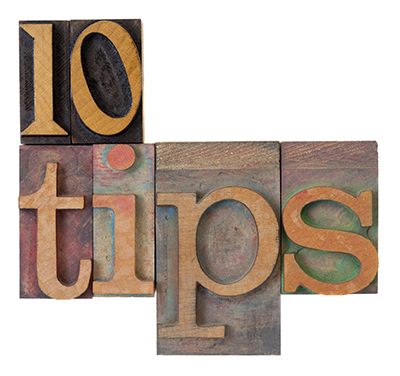10 Tips to Save on Car Insurance
Car insurance is one purchase that most people hope they will never have to use. It’s important to find the best coverage for you at a price you can afford while ensuring you have the right protections in place. The Consumer Reports National Research Center has compiled these 10 helpful tips on how to keep your premiums in check without taking on unnecessary risks.
Do an Annual Rate Check
A 2014 survey by the Consumer Reports National Research Center found that only 10 percent of 19,000 ConsumerReports.org subscribers who compared premiums found that they would save money by switching insurers.
Pick a Top-Rated Insurer
Saving money isn’t simply a matter of finding the lowest premium. Some insurers have lower premiums, but end up costing you more in the end by lowballing loss estimates, hassling the repair shop to cut corners, and forcing you to pay extra for original-equipment replacement parts. They might even unfairly jack up your premiums after an accident.
ConsumerReports.org surveyed 64,872 of its subscribers who filed a claim between 2011 and 2014. Eighty-eight percent of them were highly satisfied with the handling of their claims.
Set the Right Deductible
A higher deductible reduces your premium because you pay more out of pocket if you have a claim. Hiking your deductible from $200 to $500 can cut your premium on collision by 15 to 30 percent. Go to a $1,000 deductible and you could save 40 percent. If you have a good driving record and haven’t had an at-fault accident in years, if ever, opting for a higher deductible on collision might be a good bet. Just make sure you can afford to pay that cost if your luck runs out.
Review All of Your Coverage
Your liability coverage pays for bodily injury and property damage that you cause in accidents. Don’t get caught short by reducing your liability limits to the state minimums. Buying more coverage might seem like an odd way to save, but the benefit comes if you have a costly claim, which can put your life’s savings at risk. If you have another car that you can use while your vehicle is being repaired, you don’t need to pay for rental-reimbursement coverage. Drop roadside assistance if you have an auto-club membership that’s a better deal, or if it’s part of your new car’s warranty.
Think carefully about personal-injury protection and medical-payments coverage: Don’t purchase it if you have good health coverage; keep it if you don’t or if your usual passengers might not be well insured.
Take Advantage of Discounts
Car insurers offer a whole range of modest but worthwhile discounts that are essentially based on a low-risk lifestyle. Here are some to ask your insurer about if they don’t mention them to you first:
- Students with good grades
- New drivers who have taken a driver-training course
- Older drivers who have taken a refresher course
- Any driver who takes a defensive-driving course
- Anti-theft and safety equipment
Multiple-Policy Holders
Insurers also offer fairly hefty auto discounts if you also buy your homeowners or renters insurance from them. But be sure you check out total costs both ways: premiums from different insurers compared with single-insurer packages.
Manage Teenage Driver Risk
Adding a teenager to your policy can hike your costs by 50 to 100 percent. Make sure your child takes a safe-driving course before getting a license. Make it a rule that unsafe driving will mean loss of driving privileges.
Inform your insurer if the child isn’t licensed, or if your child is a college student residing more than 100 miles from your home and doesn’t have a car.
Maintain a Good Credit Score
Most states allow insurance companies to use your credit score as a factor in setting your premiums. Ask your insurance company if it does that. But regularly check and correct credit-reporting errors anyhow. If your finances have been adversely affected by the recession, military deployment, divorce, job loss, death of a family member, or medical problems, ask your insurer for an exception.
Report Reduced Mileage
A major cost component in auto insurance is miles driven per year. The average is about 12,000. But if you’re driving a lot less than usual for some reason, like a job change or retirement, let your insurer know. Your reduced driving could cut 5 to 10 percent off your premiums.
Choose Your Car Shrewdly
Vehicle damage is the biggest cost component for auto insurers, so premiums will vary by auto model. When comparing models, ask your insurer for premium quotes on the different models under consideration.
A good insurance agent will consider all of the above when evaluating auto insurance policies for you. Contact an NW Insurance Agency consultant today with any questions you have about saving on your auto insurance or Request a Quote today.
Source: https://www.consumerreports.org/car-insurance/10-tips-to-save-on-car-insurance/


